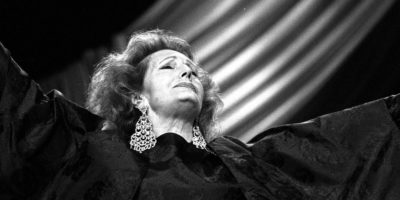Top 10 Facts About Leo Tolstoy
Leo Tolstoy was a renowned Russian writer and philosopher considered one of the greatest authors of all time. His writings were known for impacting literature in the 19th and 20th centuries. During his career, he experienced a profound moral crisis in the 1870s, caused by spiritual awakening as outlined in his work Confession (1882).
His writings continue to influence writers and readers today, and his influence on literature remains a powerful legacy. Tolstoy commitment to his subjects of writing is still relevant and aspiring today.
Here are the top 10 facts about Leo Tolstoy.
1. Tolstoy Was Born to an Aristocratic Russian Family
His descent traces back to the Tolstoy family. Tolstoy was a renowned family of Old Russian nobility who traced their ancestry to a mythical nobleman named Indris, described by Pyotr Tolstoy.
Leon Tolstoy was born on September 9, 1828, at Yasnaya Polyana to Count Nikolai Ilyich Tolstoy and Princess Mariya Tolstoya. When he was two, his mother died, and his father died when he was nine. Relatives raised Tolstoy and his siblings.
2. Tolstoy Published His First Novel in 1852
Childhood was his first novel published in the November 1852 issue of the popular Russian literary journal The contemporary, under the initials L.N. The book was an immediate success and was noticed by other Russian novelists.
Childhood delves into the mind of a young child named Nikolenka. It is one of the works in Russian literature that explores an expressionistic style, combining fact, fiction, and emotions to depict the narrator’s moods and responses.
3. Tolstoy was a Prolific Russian Writer

Photo by Sass, Moscow.-Wikimedia
Tolstoy began writing in his 20s and became one of the Russian writers regarded as one of the greatest authors of all time. He achieved literary acclaim with his semi-autobiographical trilogy, Childhood, Boyhood, Youth and Sevastopol Sketches (1855) based on his experience in the Crimean War.
His most notable works include the novels War and Peace (1869) and Anna Karenina, cited as masterpieces of literature. He has also written about the fiction of short stories such as After the Ball (1911) and novellas such as The Death of Ivan Ilyich (1886), Hadji Murad (1912), and Family Happiness (1859).
Tolstoy’s writing and ideas influenced the development of literature and philosophy in the 20th century. His work is still extensively studied and read worldwide, influencing writers, social activists, and philosophers.
4. Tolstoy Founded 13 Schools
In 1861, Tolstoy founded 13 schools in Yasnaya Polyana for the children of Russia’s peasants, who had been emancipated from serfdom in 1861. In his 1862 essay The School at Ysnaya Polyana, he described the schools’ principles.
His schools were short-lived partly due to harassment by the Tsarist secret police. Although, as a director forerunner to A.S Neill’s Summerhill School, can be justifiably claimed the first example of a coherent theory of democratic education.
5. He Served in the Army

Photo outsourced from Wikimedia
After accumulating heavy gambling debts, Tolstoy joined the army. He served as a young artillery officer during the Crimean War and was in Sevastopol during the siege of Sevastopol in 1854-1855, including the Battle of the Chernaya.
He was acknowledged for his courage during the war and promoted to lieutenant. Tolstoy was appalled by the number of deaths involved in warfare and left the army after the end of the Crimean war.
Tolstoy experience in the army and two trips around Europe converted him from a dissolute and privileged society author to a nonviolent and spiritual anarchist.
6. Tolstoy Was a Christian Anarchist
Tolstoy literal interpretation of the ethical teachings of Jesus, centering on the Sermon on the Mount and turn the other cheek, caused him to become a Christian anarchist. He rejected the idea of organized religion and believed in nonviolent resistance to injustice.
He believed that a true Christian could find lasting happiness by striving for inner perfection through loving one’s neighbor ad God, rejecting the authority of the Russian Orthodox Church, which he described as hypocritical and corrupt.
Additionally, his profound influence on the development of Christian anarchists led to the Tolstoyan movement’s formation to spread Tolstoy’s religious teachings. The ideas in Tolstoy’s book The Kingdom of God Is Within You have influenced nonviolent resistance movements to this day.
7. Tolstoy Has Been Featured in Films
A film in 2009 about Tolstoy’s final year, The Last Station, based on the 1990 novel by Jay Parini, was made by director Michael Hoffman. Christopher Plummer starred as Tolstoy, and Helen Mirren as Sofya Tolstoya. Both performers were nominated for Oscars for their roles.
There have other films about Tolstoy, including Departure of a Grand Old Man (1912) two years after his death, How Fine, How Fresh the Roses were (1913), and Lev Tolstoy (1984), directed by and starring Sergei Gerasimov.
8. He Was an Advocate of Georgism

Photo outsourced from Wikimedia
Georgism is an economic ideology stating that people should own the value they produce, but economic rent from land should belong equally to all members of society. Tolstoy incorporated georgism (philosophy of Henry George) into works such as “Resurrection (1899), the book that caused his ex-communication.
9. Tolstoy Had 13 Children
In 1860, the death of his brother Nikolay led him to desire to marry. Tolstoy married Sophia Andreevna Behrs on September 23 1862, who was sixteen years his junior. The couple had 13 children, eight of whom survived childhood.
However, their marriage started to deteriorate as his belief became increasingly radical. This led to him seeking to reject his inherited and earned wealth, including the renunciation of the copyrights on his earlier works.
Vladimir Tolstoy (born 1962), One of his great-great-grandsons, has been a director of the Yasnaya Plyana museum since 1994 and, since 2012, an adviser to the president of Russia on cultural affairs.
10. Tolstoy Died of Pneumonia
Before his death, Tolstoy spoke and wrote about dying and renouncing his aristocratic lifestyle. He embarked on a secretive departure to escape from his wife’s tirades. On November 20, 1910, he died of pneumonia at Astapovo railway station. The station master took him to his apartment, and his doctor arrived and gave him injections of morphine and camphor.
During his funeral, the police tried to limit access to his procession, but thousands of peasants lined the street. Some were heard uttering that, other than knowing that “some nobleman had died,” they knew little about Tolstoy.
Planning a trip to Paris ? Get ready !
These are Amazon’s best-selling travel products that you may need for coming to Paris.
Bookstore
- The best travel book : Rick Steves – Paris 2023 – Learn more here
- Fodor’s Paris 2024 – Learn more here
Travel Gear
- Venture Pal Lightweight Backpack – Learn more here
- Samsonite Winfield 2 28″ Luggage – Learn more here
- Swig Savvy’s Stainless Steel Insulated Water Bottle – Learn more here
Check Amazon’s best-seller list for the most popular travel accessories. We sometimes read this list just to find out what new travel products people are buying.










